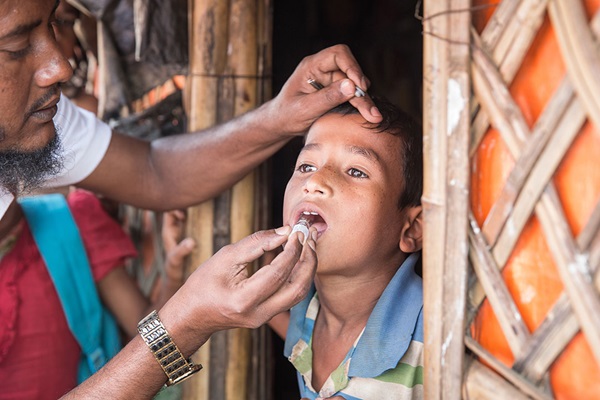
Health stakeholders have warned that despite remarkable progress over the past two decades, Nigeria remains at significant risk of vaccine-preventable disease outbreaks, urging greater investment in the country’s immunisation systems.
In interviews with journalists on Tuesday in Abuja, they acknowledged that while cases of diseases such as measles and polio have significantly declined due to sustained vaccination efforts, millions of Nigerian children remain unvaccinated, particularly in hard-to-reach and underserved communities.
According to the National Primary Health Care Development Agency (NPHCDA), an estimated 1.9 million Nigerian children have not received a single vaccine, leaving them highly vulnerable and creating reservoirs for potential outbreaks.
Virologist and public health expert, Dr. Solomon Chollom noted that although significant strides have been made in improving immunisation coverage, critical gaps persist. He warned that unless domestic funding is urgently increased, Nigeria risks reversing years of progress.
Chollom explained that Nigeria requires about 580 million dollars annually to effectively run its national immunisation programme. However, government allocations have repeatedly fallen short, with less than USD 200 million contributed domestically in recent years.
“This leaves a gap of over 200 million dollars, which is only partially filled by international partners such as Gavi, UNICEF and the Bill & Melinda Gates Foundation,” he said. “We cannot afford to rely so heavily on donor support. The government must prioritise timely disbursement of immunisation funds for long-term sustainability.”
CEO of the Vaccine Network for Disease Control (VNDC), Chika Offor also identified delayed release of budgeted funds as a major barrier to efficient vaccine delivery. According to her, such delays lead to frequent disruptions in procurement, distribution, and access.
Offor emphasised the importance of community engagement, particularly through platforms like the Community Health Influencers, Promoters and Services (CHIPS) programme, which helps identify zero-dose children in isolated areas. She called for deeper involvement of traditional and religious leaders, alongside sustained public education to dispel vaccine-related myths.
“As outbreaks of diseases like diphtheria and meningitis continue to emerge, we must act decisively,” she said. “Stronger immunisation systems form the foundation of resilient public health.”
Meanwhile, health worker, Hannah Musa highlighted Nigeria’s efforts to introduce innovative solutions, such as the needle-free Tropis Intradermal Injection System.
She said a recent study showed that this method could save the country over USD 50 million in five years and boost coverage by up to 11 pr cent in hard-to-reach populations.
Musa concluded that while Nigeria has made commendable progress, sustained political commitment, innovation, and community-based solutions are essential to protecting every child and preventing future outbreaks.

